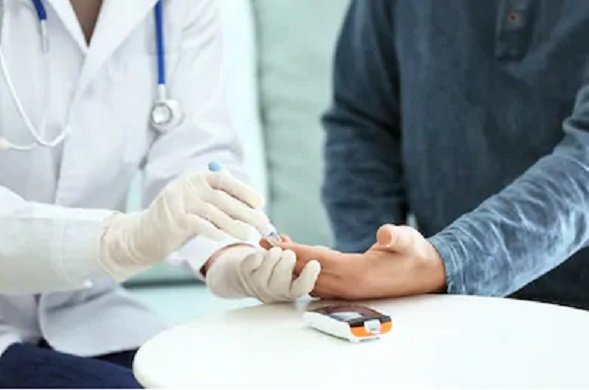Check vaccination recommendations for adults with diabetes
November 18, 2020 | Wednesday | Views
1 in 6 Indians suffer from diabetes
Image source: Shutterstock
Diabetes is the biggest menace in today’s world. 1 in 6 Indians suffer from diabetes. More than 77 million people are diabetic between the ages of 20-77 years in India. Diabetes, even if well managed, makes it difficult for your immune system to fight infections. It increases your risk to develop more serious complications from an illness as compared to the people without diabetes. This is true for both Type I and Type II diabetes.
Infections can not only complicate diabetes management but also increases the risk of hospitalization and mortality. This, in turn puts a physical, psychological and financial burden on the patient and his family. The ADA 2019 standards of medical care in diabetes and the Centers for Disease Control and Prevention (CDC) provide vaccination recommendations for adults with diabetes, specifically influenza, pneumococcal, and hepatitis B vaccinations.
Additional infectious diseases that are preventable with appropriate immunization include tetanus, diphtheria, pertussis, varicella-zoster virus, measles, mumps, rubella, and human papillomavirus.
5 basic vaccines which are recommended for diabetic patients are
- Influenza
- Pneumonia
- Hepatitis B
- Tdap
Influenza:
Annual administration of the influenza vaccine has shown a decrease in diabetes-related hospital admissions during ‘flu epidemics’ by as much as 79%, based on reports of case-controlled studies. The number of influenzas associated deaths varies every year because of the unpredictability in length and severity of each influenza season. An annual shot of the influenza vaccine protects you against the deadly infection. Flu vaccines should be taken every year as the virus mutates every year and the immunity wears off over a period of time.
Pneumonia
Pneumococcal disease, caused by Streptococcus pneumoniae, includes infection of the lungs, blood, or meninges of the brain and spinal cord. Diabetes increases the risk of acquiring pneumonia and invasive pneumococcal disease. It also increases the risk of morbidity and mortality from pneumococcal infection. The pneumococcal vaccines, 13-valent pneumococcal conjugate vaccine (PCV13) and 23-valent pneumococcal polysaccharide vaccine (PPSV23), help to protect against pneumococcal disease.
Hepatitis B
Hepatitis B is caused by the infection of the hepatitis B virus (HBV). Higher concentrations of HBV are found in blood, while lower concentrations are found in other bodily fluids. HBV infection can be self-limited or chronic, with the risk for chronic infection inversely related to age at acquisition. Chronic HBV infection carries the risk of premature death from cirrhosis or hepatocellular carcinoma. Adults with diabetes are twice as likely to acquire an acute HBV infection and have a 60% higher prevalence of HBV infection compared to adults without diabetes.
Tdap
The Tdap vaccine is commonly administered to protect against tetanus, diphtheria, and pertussis—the culprits behind lockjaw, croup, and whooping cough. However, those who haven’t had their Tdap vaccine should get one as soon as possible. CDC (the Centers for Disease Control and Prevention) recommends that a tetanus booster should be administered after every 10 years.
Zoster vaccine
Almost 1 in 3 people in the U.S. will develop shingles (also known as zoster and herpes zoster) at some point in their lifetime. This painful rash of blisters comes with the risk for long-lasting pain known as postherpetic neuralgia, a risk that increases with age. CDC recommends this vaccine for people ages 50 years and above.
For a detailed schedule of vaccination, one can refer to http://www.cdc.gov/vaccines/schedules/downloads/adult/adult-schedule-easy-read.pdf
The awareness about adult vaccination is still less in India. Vaccinations are simple, cost-effective preventive measures that can turn out as a boon for elderly people and people suffering from diseases like diabetes, hypertension, or any other chronic diseases.
Dr Arati Joshi, Family Physician, Healthspring









